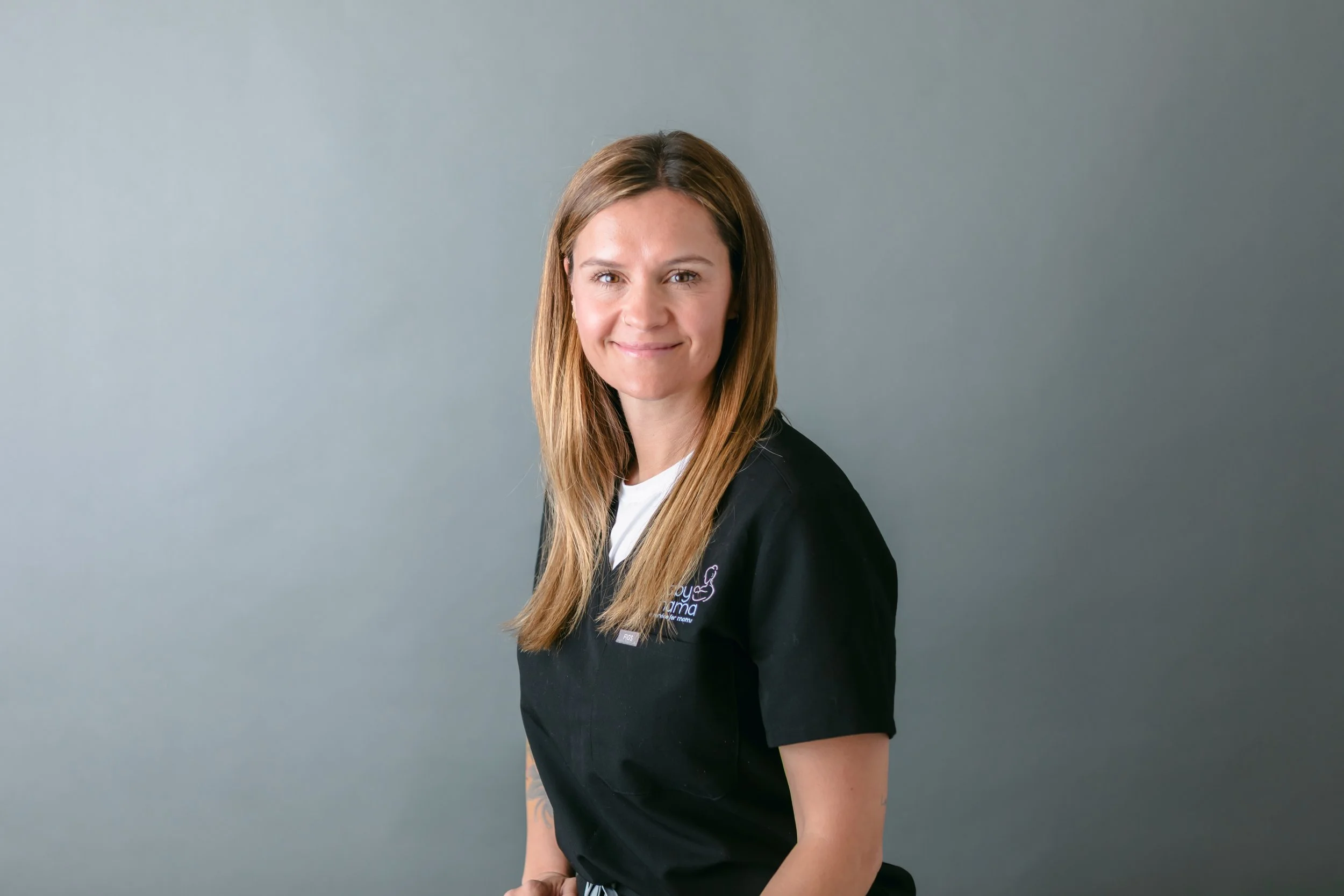Birth Doulas vs. Postpartum Doulas: What’s the Difference?
As a Denver newborn photographer, I love connecting with local experts who walk alongside families during pregnancy and postpartum. I recently sat down with Kaylan Sharp of Baby Mama to talk about what doulas really do. If you’ve ever wondered about the difference between a birth doula and a postpartum doula, or how doulas support families through high-risk pregnancies, C-sections, or stressful births, this conversation will be eye-opening.
Interview with Kaylan Sharp of Baby Mama (Part 1):
Suzy: Alright. So I am here with Kaylan Sharp from Baby Mama, and we’re going to talk a little bit today about what Baby Mama offers. Kaylan, I just want to first go over—what’s the difference between a birth doula and a postpartum doula?
Kaylan: Yes. So birth support starts in pregnancy. Doula care in general is a way to bridge the gap with education and information. Families may have great OB care, but there’s often not enough time to answer all the questions. That’s where we step in. We’re not medical professionals, but we are medically adjacent—we don’t make medical decisions, but we help you process what’s happening.
The role of a birth doula usually starts in pregnancy. Families typically hire us in the second trimester, and we do two two-hour prenatal visits before the baby is born. These are usually in-home visits—intimate and focused on the parents’ needs. They help us get to know the family, their personalities, and how they respond to stress.
Suzy: So prenatals aren’t a class, they’re home visits?
Kaylan: Exactly. Very personalized. It’s about building trust and rapport.
Most of the families we support are having hospital births, though we also support home births and birth center births. Those prenatals allow us to really tune in to what each family wants and needs.
We then go on call at 38 weeks until 41 weeks, 24/7. And when labor begins, we’re with you from the start of active labor until your baby is born—no time limit. Afterward, we stay with the family for an hour or two to help with that transition, and then we return for a postpartum visit about a week later. That visit is a chance to debrief the birth—what went well, what felt hard—and to answer early questions about feeding or sleep. And yes, we bring a home-cooked meal.
Suzy: That’s such a nice touch! But what if someone has a high-risk pregnancy or needs a C-section?
Kaylan: You can still absolutely have a doula. Even with high-risk pregnancies, the need for advocacy and emotional support is often even greater. With C-sections—or as I like to call them, “belly births”—sometimes doulas are allowed in the OR, sometimes not. But even if we can’t be in the room, we’re still providing support before, after, and throughout the process.
“At Baby Mama, we’re with you from the start of active labor until your baby is born—no matter how long it takes.”
For breech babies, we often recommend families explore their options—sometimes that’s talking with an OB about an ECV (external cephalic version), or looking into acupuncture or chiropractic care. We can’t make those decisions for families, but we can provide information and resources.
Suzy: I love that you call it a “belly birth.” It feels warmer than “C-section.”
Kaylan: Yes! I try to use less clinical, more supportive language. When you hear “C-section,” you think of blue drapes and bright lights. “Belly birth” reframes it—it’s simply a different way for your baby to arrive.
Suzy: What about supporting the partner during birth?
Kaylan: That’s one of my favorite parts of the job. We don’t replace the partner’s role—we actually help them step into it more fully. We’ll say, “Hold her hand now,” or “This is a good time to try counter pressure,” or “Help her into the tub.” Sometimes we even train partners to be doulas themselves in a way—because they know their loved one best.
Suzy: That’s such a powerful way to make the partner feel included.
Kaylan: Absolutely. Many partners tell us, “I want to help, but I don’t know how.” We show them. And that support often carries into the postpartum period too.
Conclusion
Birth doulas are about more than just labor—they’re advocates, guides, and steady hands through the unknowns of pregnancy and delivery. In part two of this interview, we’ll dive into postpartum doulas, lactation support, and the many other services Baby Mama offers to Denver families.
How to Connect with Baby Mama
If you’re considering doula support, Kaylan and the Baby Mama team would love to walk alongside you. Here’s how to get in touch:
🌐 Visit: babymamaco.com
📧 Email: info@babymamaco.com
📱 Text or call: 720-369-2440
Reach out early—especially if you’re interested in birth support—since spots are limited each month.






